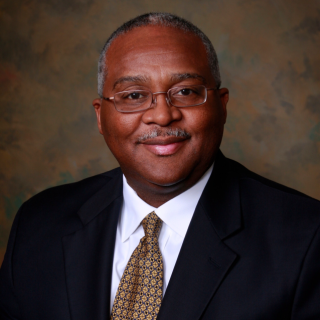
Months ago I decided that this was great, CHEST was coming to my hometown. San Antonio is a great tourist city composed of a combination of many little cities all united by hospitality, community, and highways. Obviously, everyone knows the city for the Alamo, the RiverWalk, the great TexMex food, and the Spurs. Sometimes it’s hard to believe it’s the seventh largest city (24th largest metro area) in the country because that’s not what it feels like if you live here. I’ve always loved the small town feel mixed with enough big city amenities and cultural diversity that would allow anyone to feel at home. The food available is an eclectic mix of Americana and Texan with enough European, and Asian variety available (if you know where to go) to please anyone. Everyone coming would be able to enjoy whatever free time they had.
I’d be able to sleep in my own bed, save a little money, and still have a great experience. I started the conference early enough, 7 am, but as usual, there were other braver, hardier souls who managed to drag themselves out of bed to attend the 5:45 am breakfast meetings. They always have great topics in those early sessions, but driving the 30–40 minutes in for those meetings would afford me little rest. For many years I was convinced that was the way to get my money’s worth; carefully crafting a plan to hop from session to session throughout each day. In doing so, I certainly was able to feel like I’d adequately sampled the educational opportunity provided. After all, these conferences are always frustrating because there are always 3 or 4 sessions you want to see at almost every time period. But a few years ago I realized that I often left these conferences more fatigued than when I arrived by blowing and going 14–15 hours a day, going to breakfast, lunch, and dinner sessions. I also realized that I tended to go to symposia that catered to my favored topics and would sometimes find that I’d hear repetitive lessons and concepts. It was time to get smarter and more discerning. It was also important to find sessions that added to the armamentarium I bought to the patients I care for now and not get stuck solely in academic interests.
And there was plenty for that. The word for this meeting was Phenotype. It was code for stepping back and reverting to old school medicine seen through new technological eyes. Every patient is an individual and as we proceed further into an era of personalized medicine, we first have to recognize both similarities and differences. Research trials have to be seen through the eyes of the patients we treat and their characteristics, not just the diseases that attack them. Understanding the metabolic, physiologic, environmental similarities as well as barriers to care between patient groups will better inform our treatment recommendations to our patients. This thought permeated presentations on the wide variety of pulmonary, critical care, and sleep patients studied. For example, I attended many discussions around ARDS filled with interesting discussions that highlighted the heterogeneity of ARDS patients. They noted the wide variation in illness timeline and outcomes present in our large studies. More, there was increasing recognition, 20 years after landmark articles on lung protective strategies and the dangers caused by our therapies, the continuing persistence of failing to utilize lung protective strategies early in disease course. Also noted was our use of newer technologies such as ECMO in patients who might have benefited from other, less costly therapies such as prone positioning. In other words, we were continually encouraged to open our minds to each patient to match both proven and promising therapies to the patient before us, and not be trapped into “one size fits all” mentality.
Still, this conference for me was more one of recognizing transitions. I recognized this meeting as one over the years where great experiences once cherished and loved, were now fading into the cobwebs of my memory. I found myself remembering friends lost to follow up and friends lost to eternity.
I had the opportunity to spend a few minutes with an outstanding physician who is now succeeding to a position I once held for many years almost a decade ago. I was smiling to myself, thinking of words my mentors had one spoken to me and now hearing those words coming out of my mouth to this eager, talented, intelligent physician. What would my mentors be thinking? Here was this young one, always looking and listening with respect, fully seeming to soak up everything I said like a sponge; but making intelligent responses, parrying thrusts in rapid succession, delving into possibilities and eventualities.
I found myself remembering the past times and fading memories of being in the same position. These kids with faces so young, so fresh, so excited. Their smiles illuminated by this opportunity to speak of things that were their future, research they loved, patients they had cared for. It brought back so many memories when I must have looked the same. I can’t remember having that much excitement, but I know it was there and I now know what I must’ve looked like to those more experienced and wise. So, in the end, I found myself smiling; knowing that it had been a good week and those more energetic than I were now in charge. And that was a good thing.
James “Chris” Henderson II, MD is a retired Air Force Pulmonary/Critical Care/Sleep physician now embedded as Critical Care faculty in the Santa Rosa Family Medicine Residency Program in San Antonio, TX and is an avid Science Fiction and C.S. Lewis fan.







